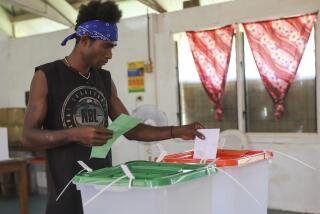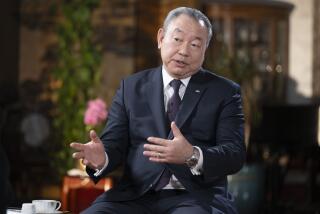In checkbook diplomacy duel, China pledges at least $8.6 billion to win over Taiwan’s allies
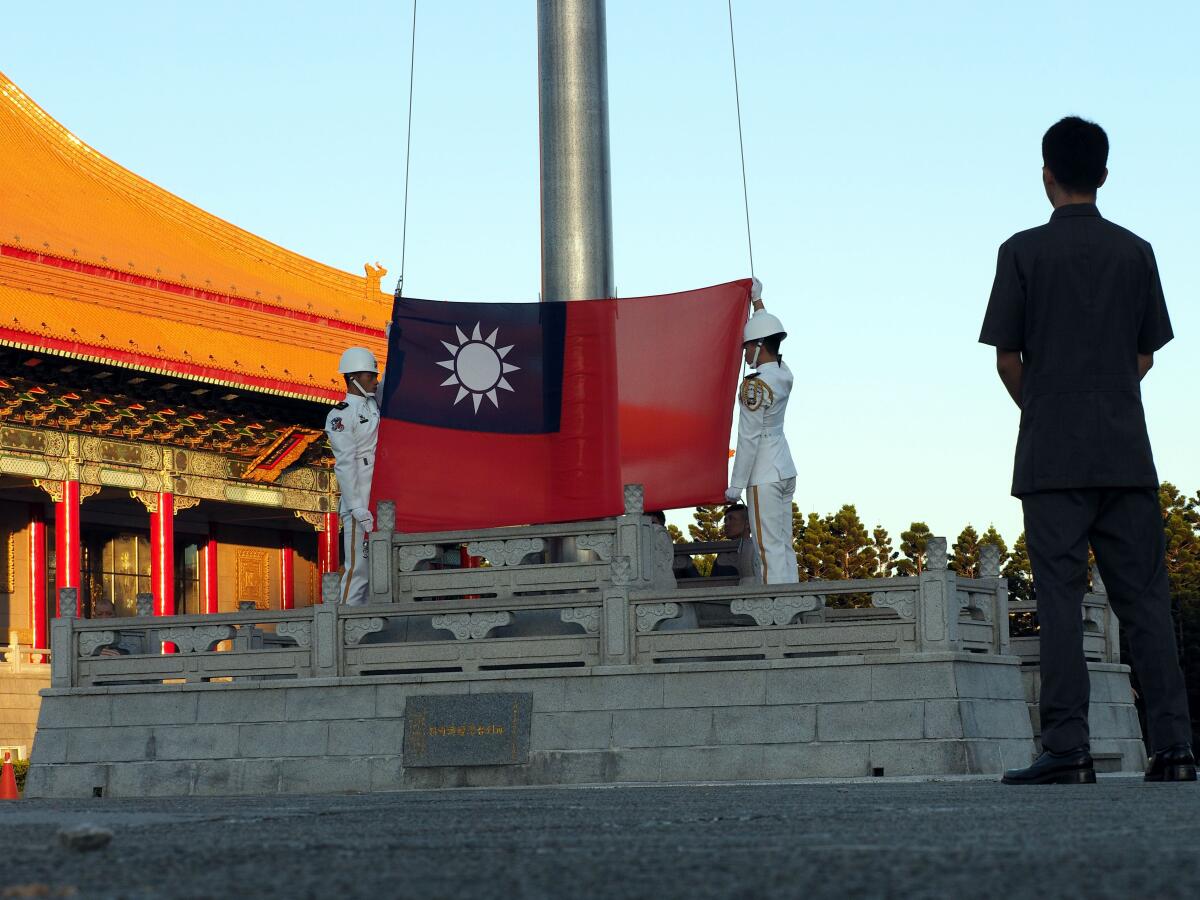
- Share via
TAIPEI, Taiwan — Goodbye, Taiwan.
A diplomatic break with Taiwan on Monday by yet another country disappointed but hardly surprised the Taipei government. The Solomon Islands, a South Pacific archipelago, followed a chain of other countries since 2016 in abandoning Taiwan to accept millions in development aid from China, underscoring an uptick in Beijing’s unabashed use of checkbook diplomacy.
Those checks will total at least $8.6 billion if China keeps its word on aid that it promised to those governments, Taiwan’s Foreign Ministry estimates. The recipients are small, relatively poor nations that looked to Taiwan, and now China, for development money. With the exit by the Solomons, only 16 countries now are diplomatically aligned with Taiwan, while more than 170 recognize China. Neither side lets countries recognize both at once.
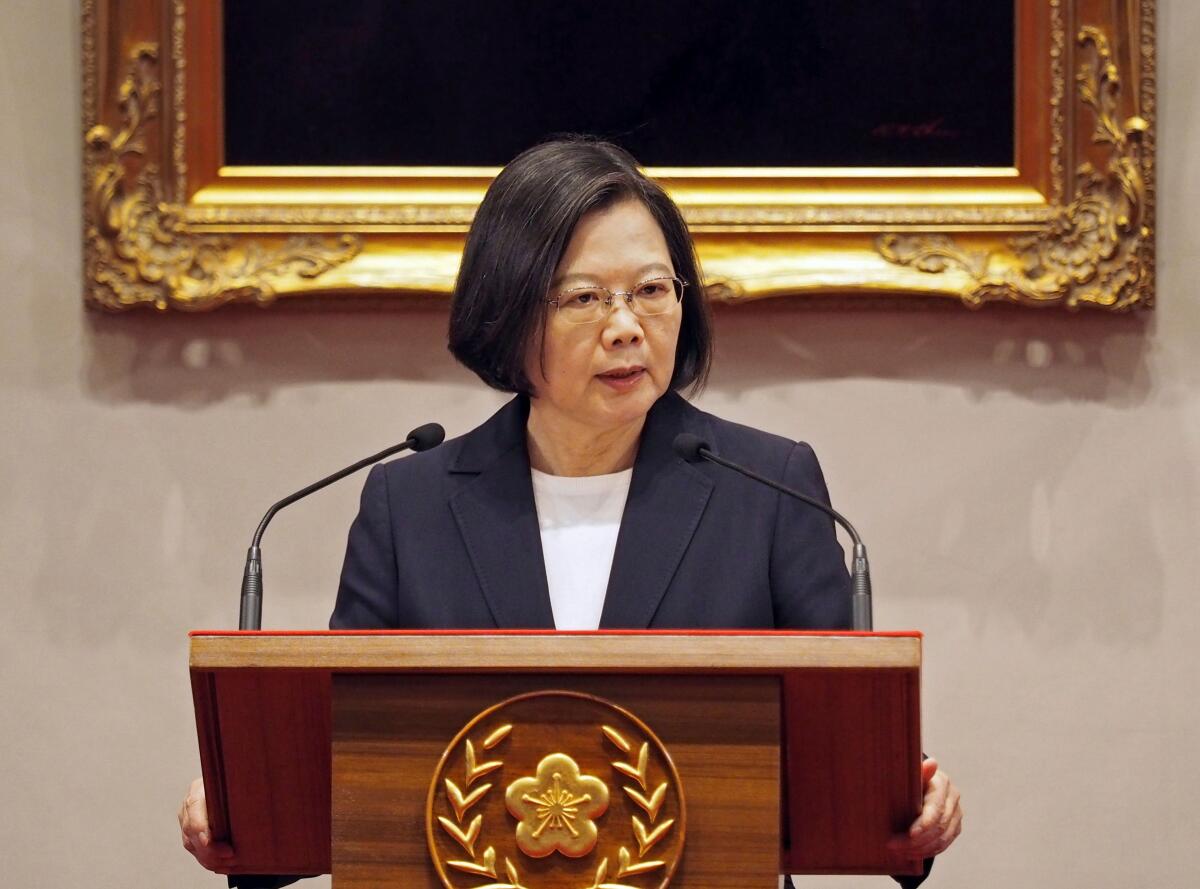
China resents Taiwanese President Tsai Ing-wen for rejecting the idea that both sides belong under a single flag — Beijing’s claim since the 1940s — so it has encouraged switches by Taiwan’s former allies since she took office in 2016.
The self-ruled Taiwan finds it hard to compete. The island lacks communist China’s budget and quick process of approving aid — although the ministry has accused China of failing to live up to its promises, threatening other countries with “debt traps.” The relative dearth of allies gives Taiwan a weak voice in the United Nations and other international agencies compared with China, which uses some of those organizations to squelch Taiwan’s foreign diplomacy.
“The Chinese are very aware that influence can be bought by giving aid and development assistance,” said Fabrizio Bozzato, a fellow at Taiwan Strategy Research Assn., a Taipei-based organization that researches relations among Taipei, Washington and Beijing. “China will use the prospect of aid allocation or soft loans to persuade a country that gives diplomatic allegiance to Taipei to switch to Beijing.”
The Chinese government budget exceeded $3.3 trillion in 2018, compared with Taiwan’s budget of about $70 billion. China lacks a legislative process, unlike democratic Taiwan, that could stop or modify aid packages.
Here are pledges that China has made to the countries that have abandoned Taiwan since 2016:
Sao Tome and Principe: China promised a $600-million deep-water harbor to the oil-reliant island nation after the two sides set up relations in December 2016, the Foreign Ministry in Taipei says. The country of just 216,000 people lacks a harbor deep enough for oil tankers. The African nation had been planning the harbor since 2008, but Taiwan’s president at the time rejected its request for aid, according to research lab AidData at the College of William & Mary.
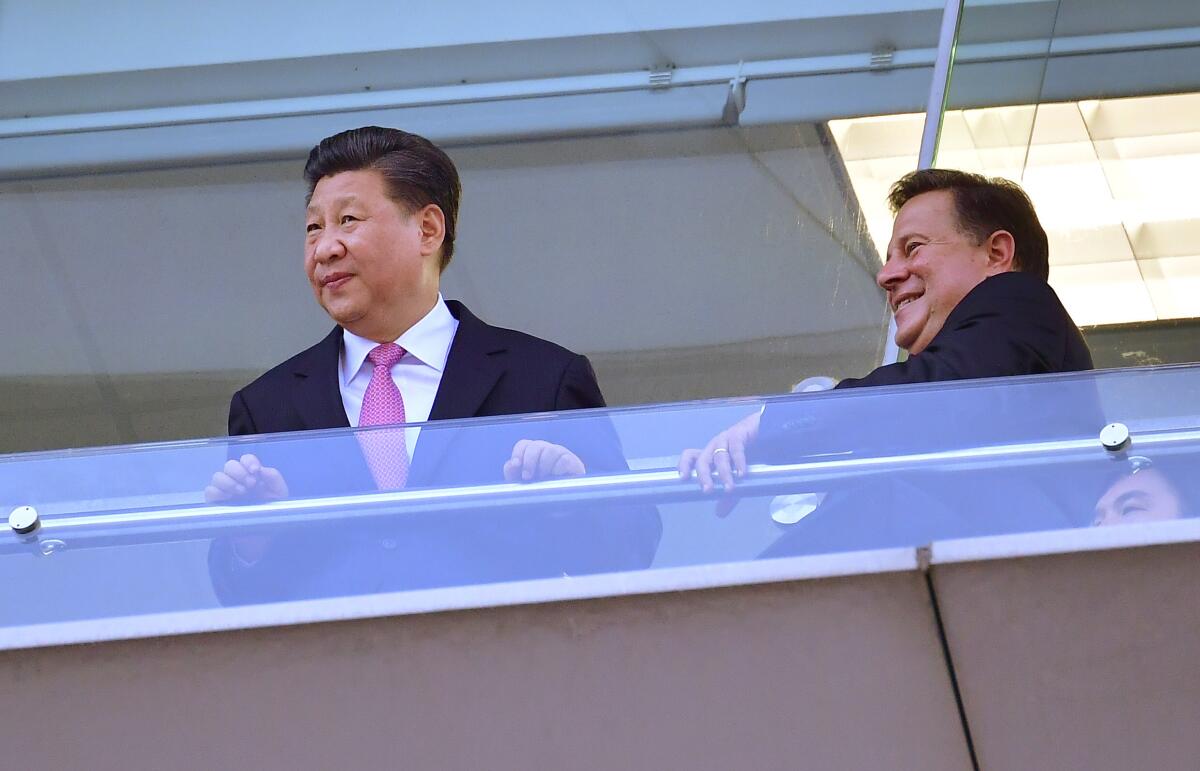
Panama: Taiwan’s Foreign Ministry lacks data on aid offered by China to Panama since the Central American country switched recognition in June 2017. In December last year, China and Panama signed 19 agreements, including one giving Panama an undisclosed amount of “non-reimbursable aid” for “various projects,” the investment consultancy Caribbean Council says on its website. Panama’s switch handed Tsai her biggest foreign relations setback because of the Panama Canal’s strategic importance to shipping.
Dominican Republic: China said it would give this Caribbean island country investments amounting to $3 billion, according to Foreign Ministry data in Taipei. A Chinese state-run bank will offer a $600-million loan to upgrade the Dominican Republic’s power distribution, the Caribbean Council says, while other agreements will extend Chinese aid to infrastructure construction, farming and trade. The Dominican Republic severed ties with Taiwan in May 2018.
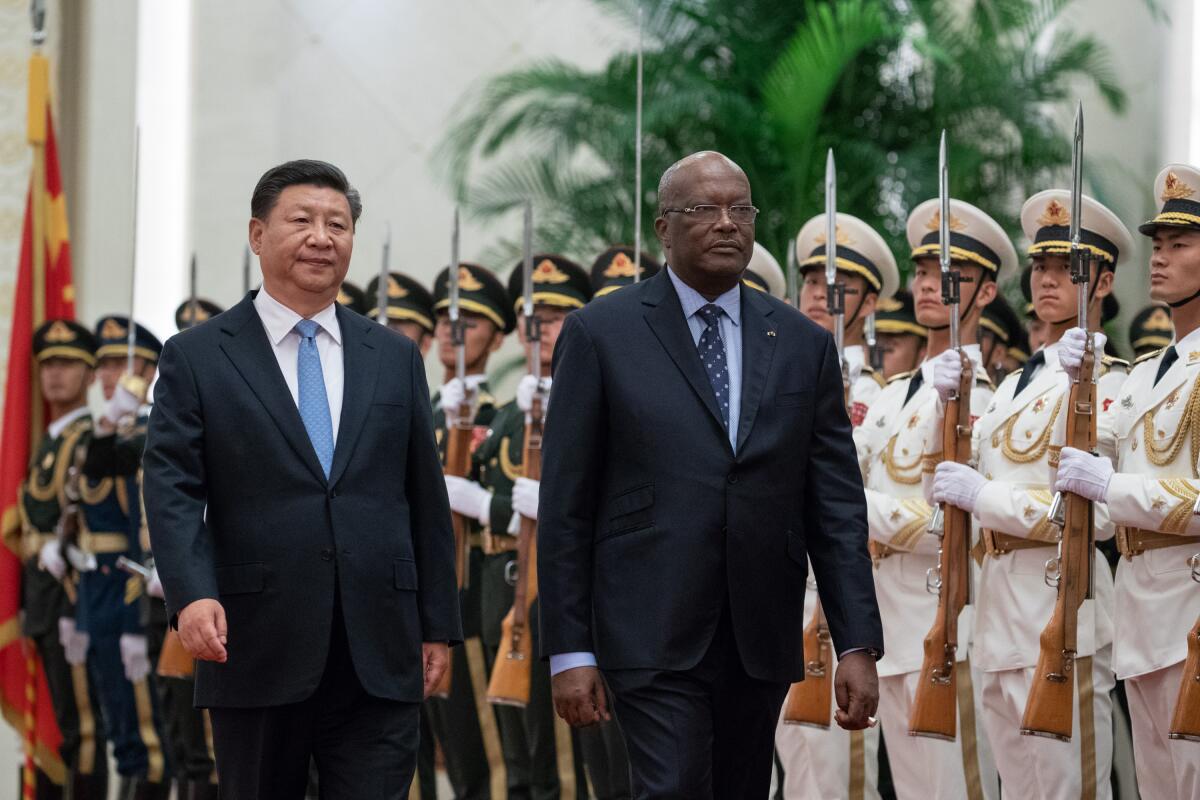
Burkina Faso: This landlocked West African country was promised transport infrastructure worth $1 billion, the ministry in Taipei says. “Bottlenecks” in transportation “undermine any competitive advantages Burkina Faso may have,” but the country lacks money to do much about it, the global development organization IFC says in a July 2019 study. Burkina Faso, one of the poorest countries in the world with 40% of people in extreme poverty, established formal relations with China in May 2018, days after splitting from Taiwan.
El Salvador: China intends to give El Salvador $4 billion to help develop the Port of La Union, Taiwanese Foreign Ministry spokeswoman Joanne Ou said. El Salvador finished reconstruction of the seaport in 2012, but the U.S. Embassy in San Salvador said last year the country was looking for a concessionaire to run it. China made “a promise to El Salvador to provide billions to develop the Port of La Union, but nothing is happening,” Ou said. El Salvador cut ties with Taiwan in August 2018, spurring the United States to warn other Central American countries, which are traditional U.S. allies as well, against any further switches to China.
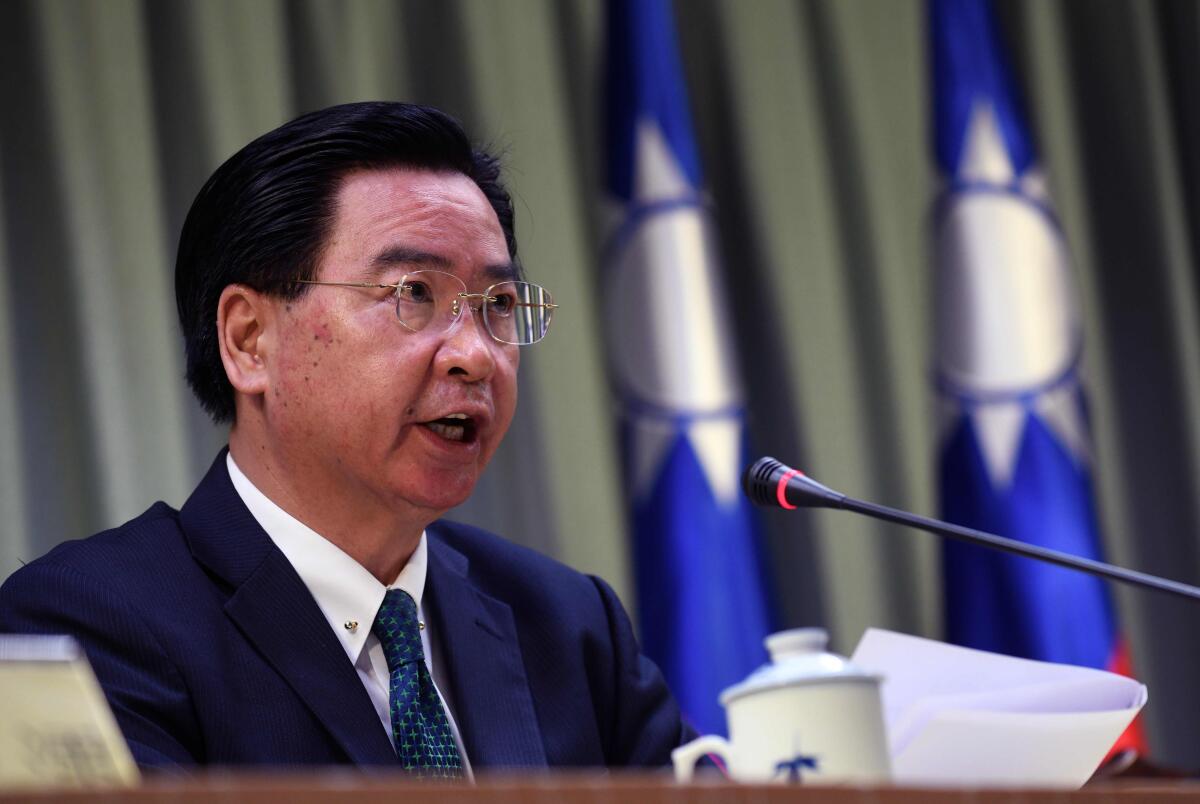
Solomon Islands: Taiwanese Foreign Minister Joseph Wu said at a news conference Monday that China had offered money to the Solomon Islands, but the ministry does not have a figure. The Solomons had been on Taiwan’s roster of allies since 1983.
Jennings is a special correspondent.
More to Read
Sign up for Essential California
The most important California stories and recommendations in your inbox every morning.
You may occasionally receive promotional content from the Los Angeles Times.
